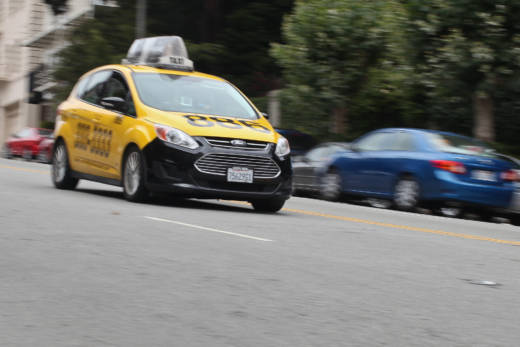In 2010, San Francisco started selling taxi medallions to cab drivers. The city made millions of dollars. Today, the market for these taxi permits is in a shambles -- the drivers who bought them are stuck with toxic assets, and the credit union that the city asked to finance loans for the medallions is suing for its losses.
A medallion is a permit to operate a taxi, and for years it was a surefire investment. Medallions were free and were awarded to taxi drivers based on seniority. Drivers would often wait over a decade to get one. And once they had a medallion, they could rent it out to make passive income when they weren’t driving. This was the de facto retirement plan for a cab driver, but it all started to change eight years ago.
In 2010, San Francisco was struggling to balance its budget. To make extra revenue, then-Mayor Gavin Newsom took a page from New York City’s playbook. He “monetized” the city’s medallions. Newsom had the city start selling them for a fixed price of $250,000 apiece. All this went back on a promise Newsom had made to keep the existing taxi medallion system in place.
And $250,000 is a steep price for a cab driver. The city needed a lender to offer loans to drivers who wanted to purchase a medallion. But drivers are often immigrants with no credit history. Major banks weren’t interested in such high-risk lending. So, the city turned to its credit unions.
Jonathan Oliver is CEO of the San Francisco Federal Credit Union, one of three credit unions in the city. These credit unions fill a vital niche for the area.
